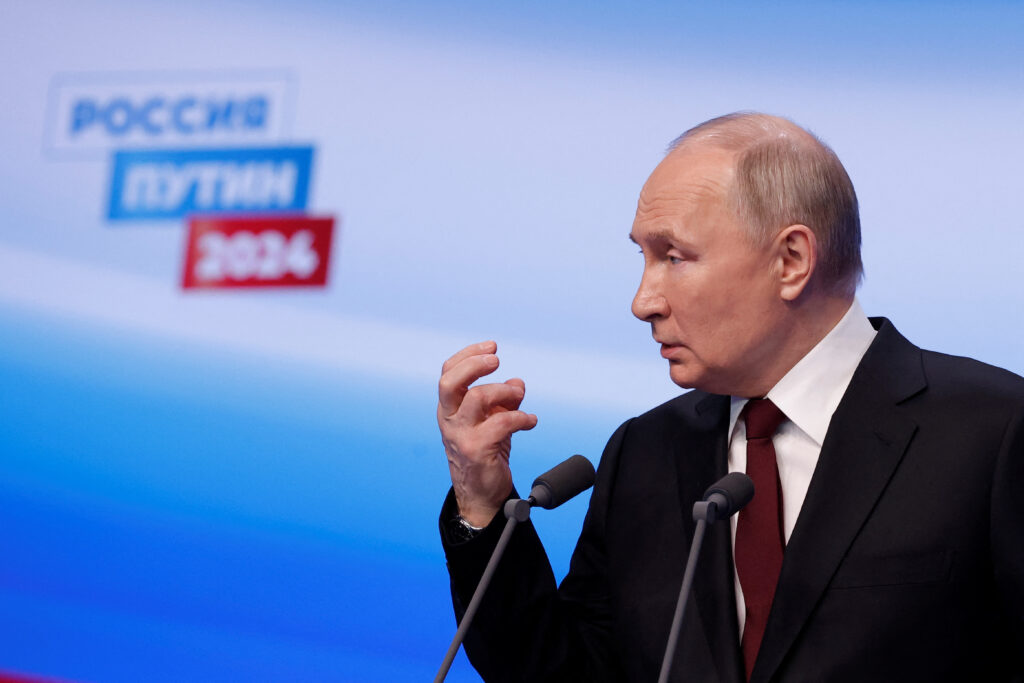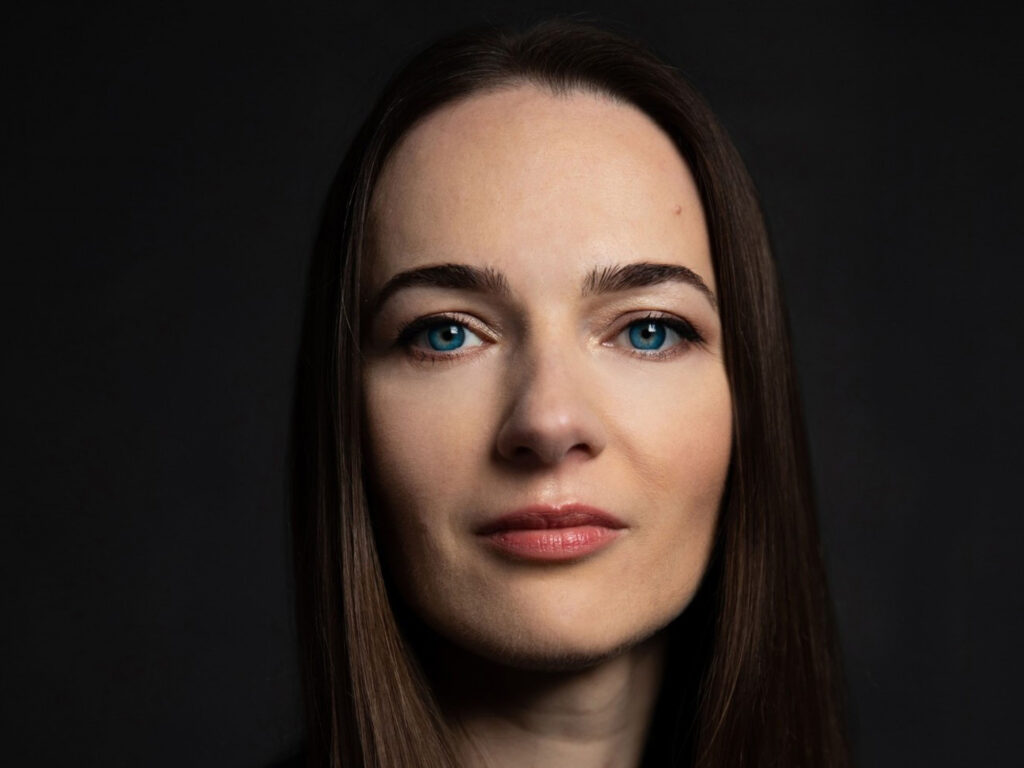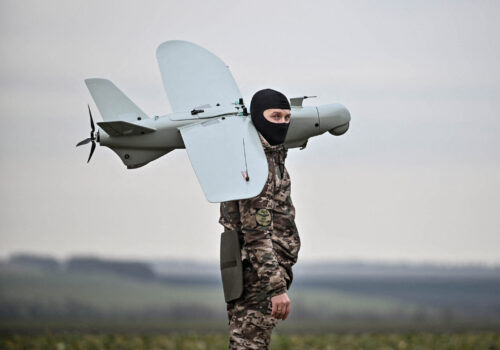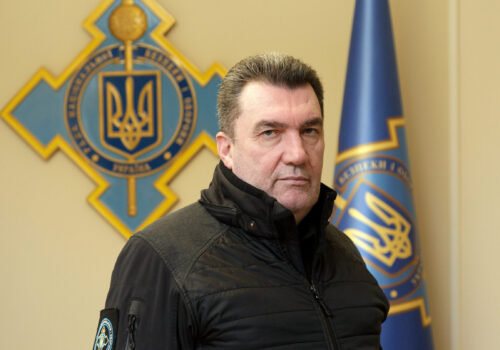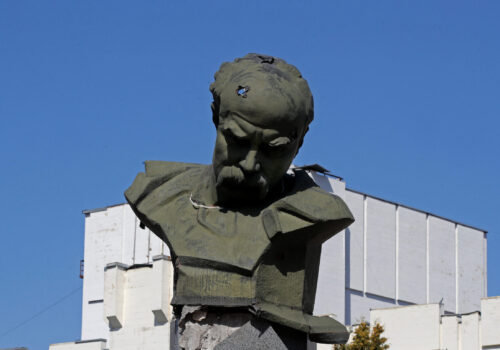History has always served as an ideological battlefield, but few rulers in the modern era have weaponized the past quite as ruthlessly as Vladimir Putin. For more than two years, the Russian dictator has sought to justify Europe’s largest invasion since World War II by portraying it as a sacred mission to reclaim “historically Russian lands.”
Putin’s preoccupation with history has become increasingly evident as his reign has progressed, and is closely linked to his deep-seated resentment over the perceived historical injustice of the 1991 Soviet collapse. As early as 2005, Putin was lamenting the breakup of the USSR as “the greatest geopolitical catastrophe of the century.”
This sense of injustice has helped fuel Putin’s obsession with Ukraine, a neighboring country that many Russians still regard as a core part of their own nation’s historical heartlands. The existence of an independent Ukraine has long been resented by Putin as a symbol of modern Russia’s retreat from empire. Since the early years of his reign, he has made the subjugation of Ukraine one of his foreign policy priorities.
During the initial stages of the Kremlin campaign to reassert Russian authority over independent Ukraine, considerable effort was made to undermine the historical legitimacy of the Ukrainian state among Russian audiences and inside Ukraine itself. As Russian aggression against Ukraine escalated, the Kremlin’s war on Ukrainian history also expanded, with Ukrainians demonized as “Nazis” and dismissed as an “artificial nation.”
Years of increasingly hostile rhetoric paved the way for military aggression. When Putin launched the invasion of Ukraine in spring 2014 with the seizure of Crimea, he began referring to southern and eastern Ukraine as “Novorossiya” (“New Russia”). His decision to revive long-forgotten imperial terminology from the Czarist era was the clearest indication yet that Putin intended to extinguish Ukrainian statehood and reverse more than a century of European history.
Stay updated
As the world watches the Russian invasion of Ukraine unfold, UkraineAlert delivers the best Atlantic Council expert insight and analysis on Ukraine twice a week directly to your inbox.
Putin formalized his denial of Ukrainian statehood in a controversial history essay published in July 2021. Entitled “On the Historical Unity of Russians and Ukrainians,” this remarkable document laid out Putin’s rejection of Ukraine’s right to exist, while arguing at length that Ukrainians are actually Russians (“one people”). Putin’s essay laid the ideological groundwork for the full-scale invasion that commenced months later.
Over the past two years, history has remained a key front in the struggle to justify the Russian invasion of Ukraine. During the first summer of the war, Putin directly compared himself to Peter the Great and likened the invasion of Ukraine to the eighteenth century Russian Czar’s wars of imperial conquest.
A year later, Putin ordered the launch of new history textbooks for Russian schoolchildren along with curriculum changes with the apparent aim of legitimizing the ongoing military campaign to destroy the Ukrainian state and nation. This was part of a broader trend within Russia to bring the country’s official historical narrative into line with Putin’s increasingly radical brand of revisionism.
Eurasia Center events

Strikingly, Putin chose to use his high-profile February 2024 interview with US media personality Tucker Carlson as a platform to frame the war in Ukraine as a quest for historical justice. While Carlson clearly wanted Putin to blame NATO and the US for the invasion, Putin himself preferred to embark on a rambling half-hour history lecture explaining the ancient roots of Russia’s claim to Ukraine.
Other senior Russian officials have taken their lead from Putin’s weaponized version of history. The most prominent example of this trend is former Russian President Dmitry Medvedev, who regularly employs historical references in his frequent attacks on Ukraine and the wider Western world. “One of Ukraine’s former leaders once said Ukraine is not Russia. That concept needs to disappear forever. Ukraine is definitely Russia,” he declared in March 2024.
With the full-scale Russian invasion of Ukraine now in its third year, Putin’s historical motivations are becoming more and more apparent. He regularly declares that major Ukrainian cities such as Odesa and entire regions of Ukraine are “historically Russian,” indicating that his imperial ambitions are still far from satisfied.
Many are now asking how far Putin intends to go. He has often expressed his belief that the Soviet Union was the Russian Empire under a different name. If Putin takes his crusade to reclaim “historically Russian lands” further and expands the definition to include all of the former Czarist domains, this would place more than a dozen additional countries at risk of suffering the same fate as Ukraine.
Putin has weaponized history to justify the genocidal invasion of Ukraine and dehumanize the entire Ukrainian nation. Unless he is stopped in Ukraine, the Russian dictator will use the same bogus historical arguments to launch new imperial adventures.
Nicholas Chkhaidze is a Research Fellow at the Baku-based Topchubashov Center.
Further reading
The views expressed in UkraineAlert are solely those of the authors and do not necessarily reflect the views of the Atlantic Council, its staff, or its supporters.

The Eurasia Center’s mission is to enhance transatlantic cooperation in promoting stability, democratic values and prosperity in Eurasia, from Eastern Europe and Turkey in the West to the Caucasus, Russia and Central Asia in the East.
Follow us on social media
and support our work
Image: Russian President Vladimir Putin speaks after polling stations closed in Moscow. March 18, 2024. REUTERS/Maxim Shemetov
